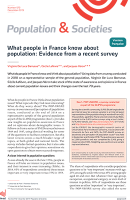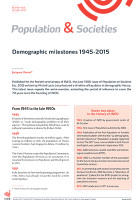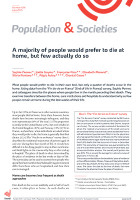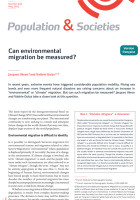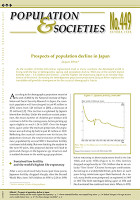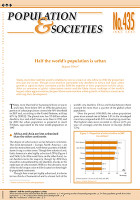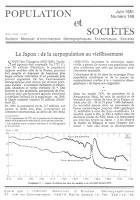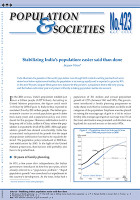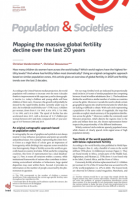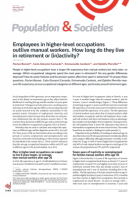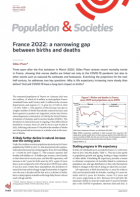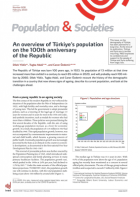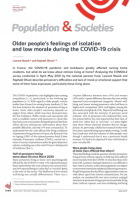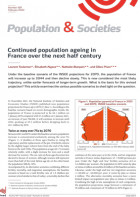
Age, Generations and the Social Contract
2007The Demographic Challenges facing the Welfare State
Foreword. Jacques VERON and Sophie PENNEC
Preface. François HÉRAN - Comments on the Social Contract and the Intergenerational Equity
Introduction. Jacques VERON, Sophie PENNEC & Jacques LEGARE
Section I. Changing Background of Intergenerational Relationships
- Chapter 1. Ronald LEE - Demographic Change, Welfare and Intergenerational Transfers: a Global Overview
- Chapter 2. Jacques VÉRON & Sophie PENNEC - Demographic Context of the Social Contract in Developed Countries: Unity and Diversity
Section II. Generations, Social Contract and Labour Force Participation : Theoretical and Empirical Issues
- Chapter 3. André MASSON - Economics of the Intergenerational Debate: Normative, Accounting and Political Viewpoints
- Chapter 4. Bernard PERRET - Reorganizing the Activity Cycle: The Stakes in a New Social Contract
- Chapter 5. Patrick AUBERT, Didier BLANCHET & David BLAU - Social Contract and Age at Retirement: Some Elements of a Franco-American Comparison
- Chapter 6. Pierre PESTIEAU - Longevity and Work
Section III. Family and Relationships between Generations
- Chapter 7. René JOYAL - The Legal Relationship between Grandparents and Grandchildren in Quebec: A Disconcerting Evolution
- Chapter 8. Jenny GIERVELD - Demographic Changes and the Social Contract of Informal Support within the Family
- Chapter 9. Constanza TOBIO - Change and Reciprocity in Intergenerational Relationships: The discourse of Spanish Working Mothers
- Chapter 10. Emily GRUNDY - Intergenerational Exchanges in Older Populations
- Chapter 11. Christian DELBÈS & Joëlle GAYMU - Family Solidarities at the Beginning of Retirement in France
Section IV. Redistribution and Intergenerational Equity
- Chapter 12. Christina BEHRENDT - Pensions and Income Redistribution in a Comparative perspective: Evidence from the Luxembourg Income Study
- Chapter 13. Hervé GAUTHIER - Social Spendings: Recent Changes and Conditions for its Long-term Viability
- Chapter 14. Susan MCDANIEL - Pensions, Privilege and Poverty: Another ’Take’ on Intergenerational Equity
Section V. Social Time
- Chapter 15. Harriet B. PRESSER - Toward a 24 -Hour Economy: Implications for the Temporal Structure and Functioning of Family Life
- Chapter 16. Evelyne LAPIERRE-ADAMCYK, Nicole MARCIL-GRATTON & Céline LE BOURDAIS - Working Schedules: in Search of a Balance between Family Time and Economic Wellbeing
- Chapter 17. Leroy O. STONE - Determinants of Paths of Transition to Total-Work Retirement: a Preliminary Empirical Analysis
Concluding Remarks. Beyond Mecanicism: Norms and Values. Jacques VERON & Sophie PENNEC
Authors
Our societies are ageing. The family is changing. Labour force behaviour is evolving. How is the organization of family and collective solidarity adopting in this context of longer life spans, low fertility, and work that is simultaneously scarce and abundant ?
The welfare states are currently facing three main challenges: ensure satisfactory living conditions for the elderly without increasing the cost burden on the active population, reduce social inequality, and maintain equity between successive generations.
In this book researchers from different countries compare their experiences and offer contrasting views on the future of social protection.
Part one focuses on the theoretical aspects of the intergenerational debate: the "optimal" level of redistribution between active and inactive generations; the organization of work across the life cycle; changes in labour force behaviour; the optimal retirement age.
Relations between generations within the family form the subject of part two: the paradoxical development of legislation in Quebec; age-related changes in family networks and in solidarity towards elderly people; mutual help between the generations in Spain to enable young mothers to stay in the labour market.
Part three examines the living standards of elderly people: redistributive effects of social regimes and in particular of retirement pensions; intergenerational solidarity and equity.
The final section considers the question of social time: the growth and consequences of the round-the-clock economy; the reconciliation of working life with family life; the trajectories of withdrawal from paid employment and others activities.



